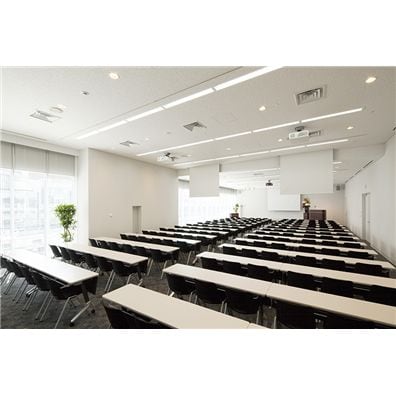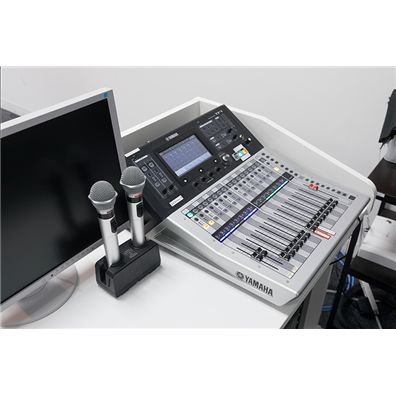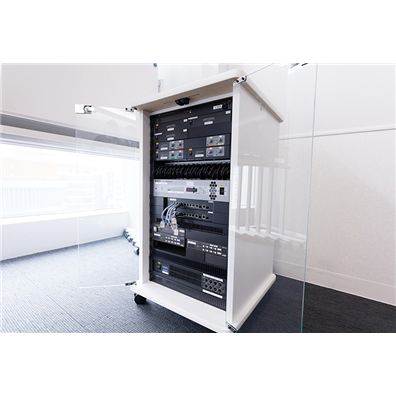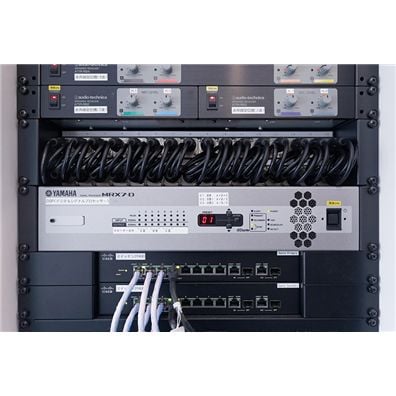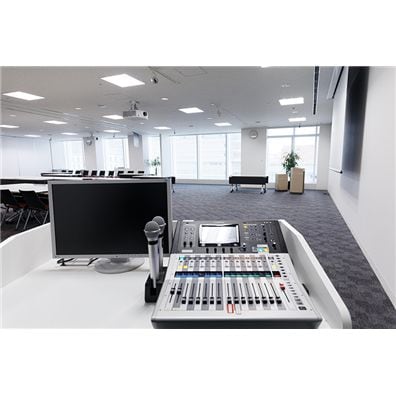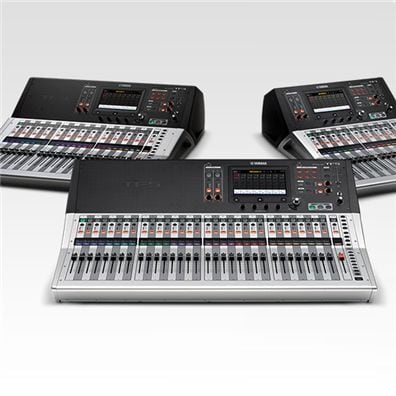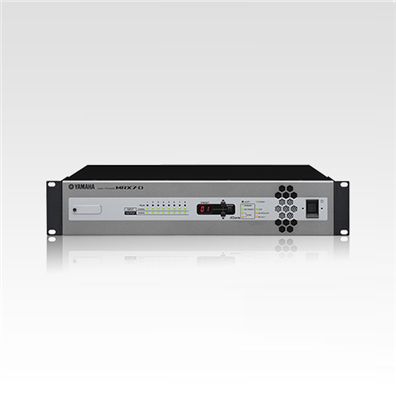UDX Conference and UDX Gallery, Tokyo
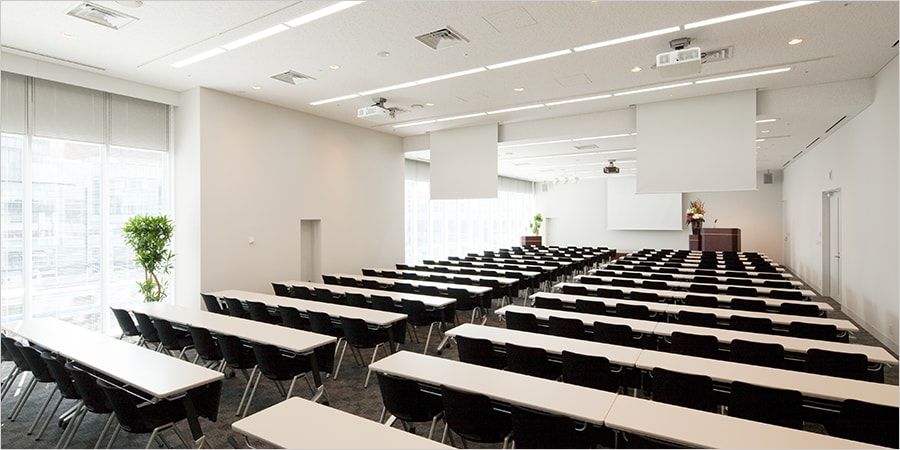
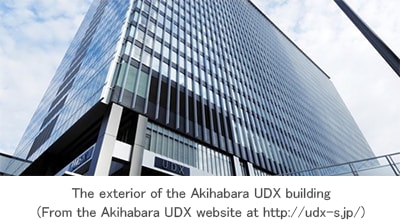
Akihabara UDX opened in Tokyo’s high-tech Akihabara district in 2006, with restaurants, shops, conference rooms, an event space, theater, clinic, parking, and more. Its all-embracing array of functions and spaces has made it a new Akihabara symbol. In May 2017, 11 years after the complex’s initial opening, the UDX Conference rental meeting rooms on the 6th floor and the UDX Gallery event space on the 4th floor were renovated and updated with the installation of five Yamaha TF1 digital mixing consoles and two Yamaha MRX7-D signal processors. To learn about the system and the process that led to adopting Yamaha equipment for the installation, we spoke to Mr. Takuya Akasaka of INFIELD Inc., the company that operates the facility, and Mr. Eiji Kawashima of ESPATECHNO,Co.,Ltd. the company responsible for the audio/video system.
Please begin by describing UDX Conference and UDX Gallery for us.
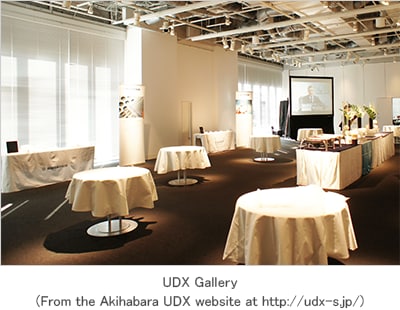
Mr. Akasaka:
UDX Conference is a formal rental conference room, and UDX Gallery is a large event space. UDX Conference covers an area of about 350 square meters with a ceiling height of 2.85 meters. UDX Gallery is 725 square meters in area with a ceiling height of about 4 meters.
How are UDX Conference and UDX Gallery normally used?
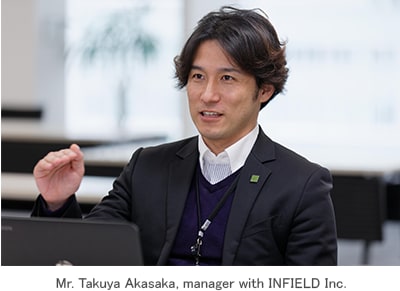
Mr. Akasaka:
UDX Conference is used for seminars, workshops, and, of course, conferences. UDX Gallery is used for a wide variety of events including exhibits, presentations, seminars, and even catered receptions.
We understand that a goal of the renovation was to move to a digital system. Was the previous system all analog?
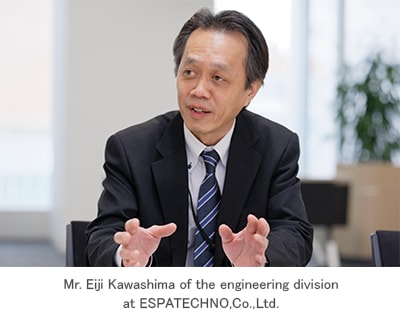
Mr. Akasaka:
Both video and audio were all analog prior to the renovation. The video system did not support HDMI input or a 16:9 aspect ratio. But since the facility is in Akihabara, customers expect the most advanced technology. It was mostly customer demand that led to the renovation, and we decided to implement the most advanced digital technology available.
Mr. Kawashima:
Before the renovation the audio system was based around a single analog mixer, and rooms were combined or divided by patching through an analog patch bay. If audio adjustments were required in a room where the mixer was not located, staff would have to access the mixer even if it was in a room where another event was in progress.
Mr. Akasaka:
We were continually making pre-event line checks in order to avoid such situations as much as possible, and that made day-to-day operation quite labor intensive. Now that we have installed a Dante digital audio network, patching for room combinations or divisions can be done instantaneously and assuredly at the press of a button.
Tell us about the new TF1 and MRX7-D system.
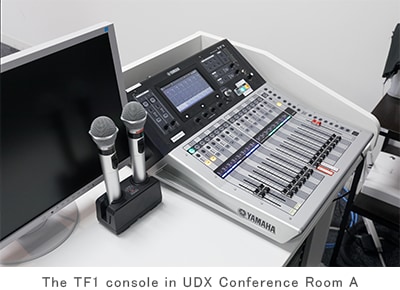
Mr. Kawashima:
There are six UDX conference rooms, and three of those rooms are now equipped with TF1 consoles. All three TF1 consoles are connected to the MRX7-D in the lounge area rack via the Dante network. Three room combination presets have been created to allow instantaneous switchover via the MRX7-D: Room A+B+C is Scene 01, Room A+B with C independent is Scene 02, and all three rooms operating independently is Scene 03. The UDX Gallery setup is similar, with TF1 consoles in the Type S and Type N rooms connected to the MRX7-D via Dante, and preset scenes that allow the audio system to be quickly reconfigured as required.
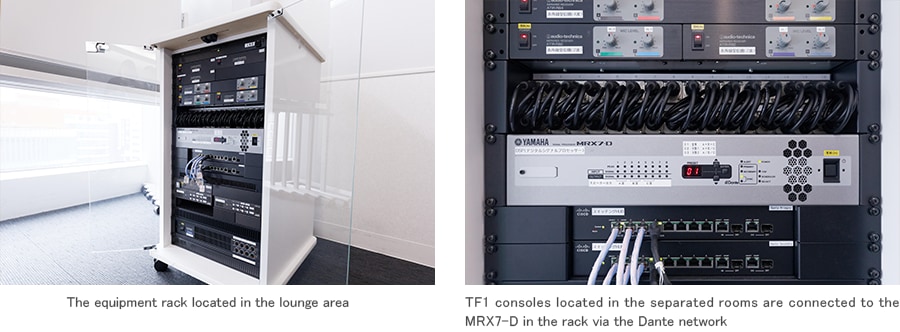
Why was Dante chosen as the system’s digital audio network protocol?
Mr. Kawashima:
The fact that it is state-of-the-art technology and provides high-performance digital audio transmission was the main reason. We had used EtherSound in the past, and initially considered it for this system, but Dante was chosen for its high stability, its compatibility with the low cost of devices, and most importantly its provision of a secondary redundant network that doesn’t impact other features or performance. We actually had a problem with the infrastructure during operation, but the secondary network kept system running normally. The ability to easily set up redundant primary and secondary networks that minimize or eliminate downtime if a problem occurs is one of Dante’s main advantages.
And why was the MRX7-D chosen?
Mr. Kawashima:
The main reason for choosing the MRX7-D was its compatibility with the TF1. Also, I have installed numerous DME units in the past and was always impressed with how easy they were to use, so the MRX7-D was an obvious choice.
And how about the TF1?
Mr. Kawashima:
I think it would be fair to say that the entire renovation was made possible by the TF1. When planning for a digital renovation was begun in 2014, we initially considered building the system around QL series consoles. But we couldn’t reach a satisfactory compromise in terms of cost and operability, and the project stalled. Then when the TF1 was released with its excellent cost-performance ratio and easy operation, we were able to reboot the project with the result that a total of five TF1 consoles are installed in UDX Conference and UDX Gallery rooms.
Mr. Akasaka:
As Mr. Kawashima mentioned, the renovation was an investment so cost was a primary consideration. Over a span of just one or two years the capabilities of digital audio and video equipment increased remarkably while prices dropped to the point that we could revise our plan and implement the type of system we initially wanted without compromise. I believe the renovation has significantly increased the asset value of the Akihabara UDX building.
Have you received any feedback from customers regarding the TF1?
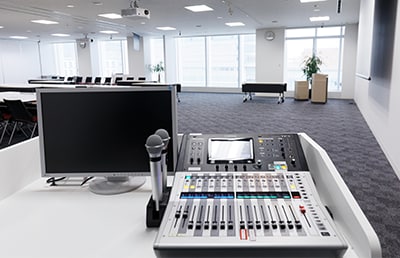
Mr. Akasaka:
It is our customers who actually use the equipment. If operation is difficult, even if all of the required functionality is available, they will not want to come back a second or third time. We provide orientations on how to use the equipment before our customers actually use the facilities, and have thus far not seen any cases where a customer was confused or unable to operate the system. The touch panel is particularly easy to understand and use.
Mr. Kawashima:
Another advantage is that the user account function makes it possible to prevent unwanted changes to specified controls. We can set up user accounts so that access to parameters that should not be changed is blocked for outside users.
Are there any reasons why you chose Yamaha?
Mr. Kawashima:
Quality of support was an important factor in our decision to use Yamaha equipment. Yamaha support has been outstanding, from the planning stage right through to the installation and thereafter. The installation had to be completed within a very tight one-week schedule, and Yamaha’s response during that time was a great help.
Mr. Akasaka:
Conference management and operation is similar. We place people first. An audio equipment manufacturer like Yamaha also functions on a person-to-person basis at the grass roots level. It is difficult to stand out in a service industry like rental conference rooms, and I believe the final choice often comes down to people. People are the key to achieving a high utilization and repeat rate. Thankfully, we have about an 80% repeat rate, and it is difficult to determine whether that is due to people who want to use our services again or the venue itself. To us, people are the service, and we take pride in that principle. All of our staff are continually working to ensure that the venue offers maximum appeal to our customers. In that respect the high level of support and reliability offered by Yamaha is similar to what we do.


